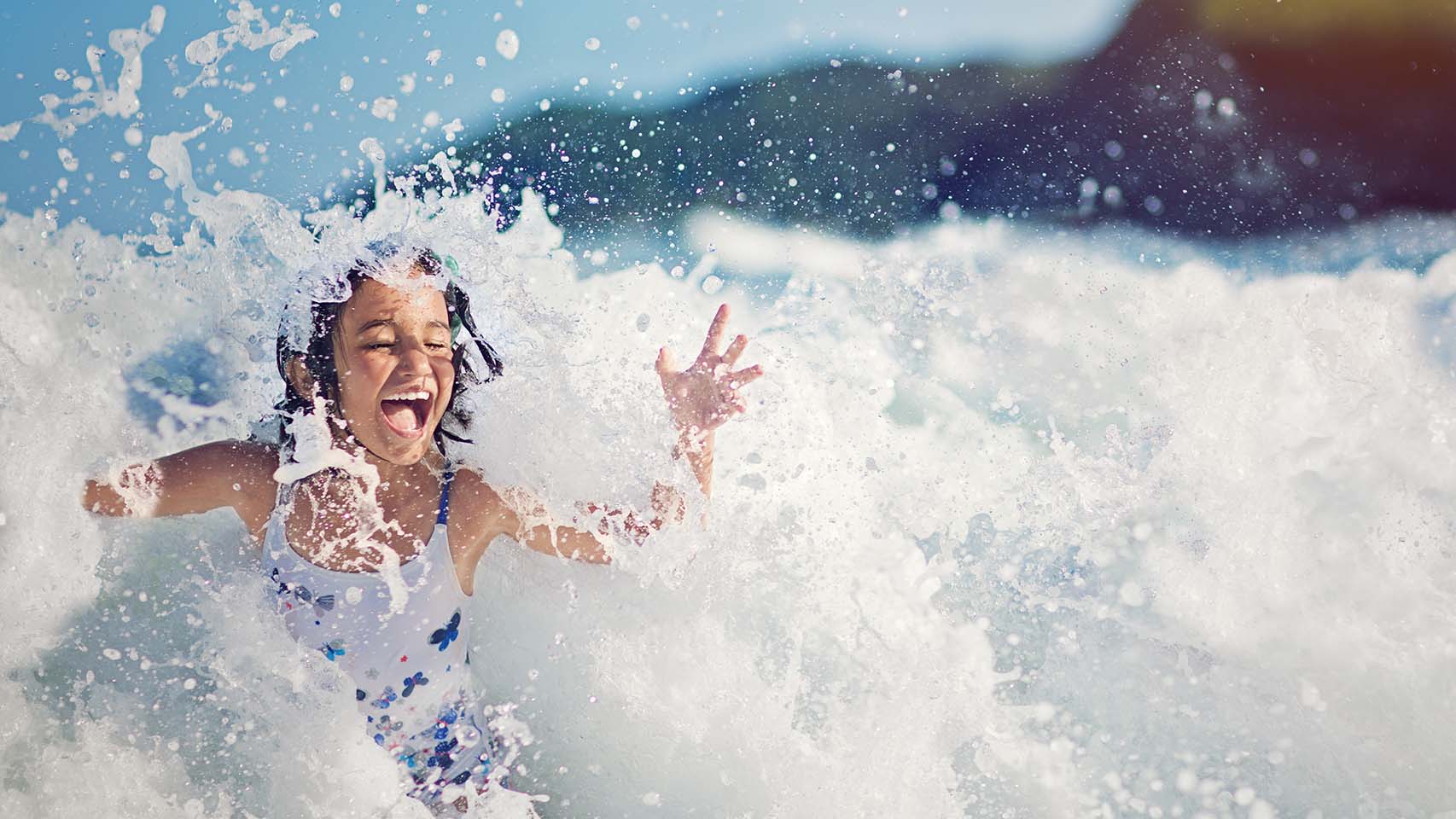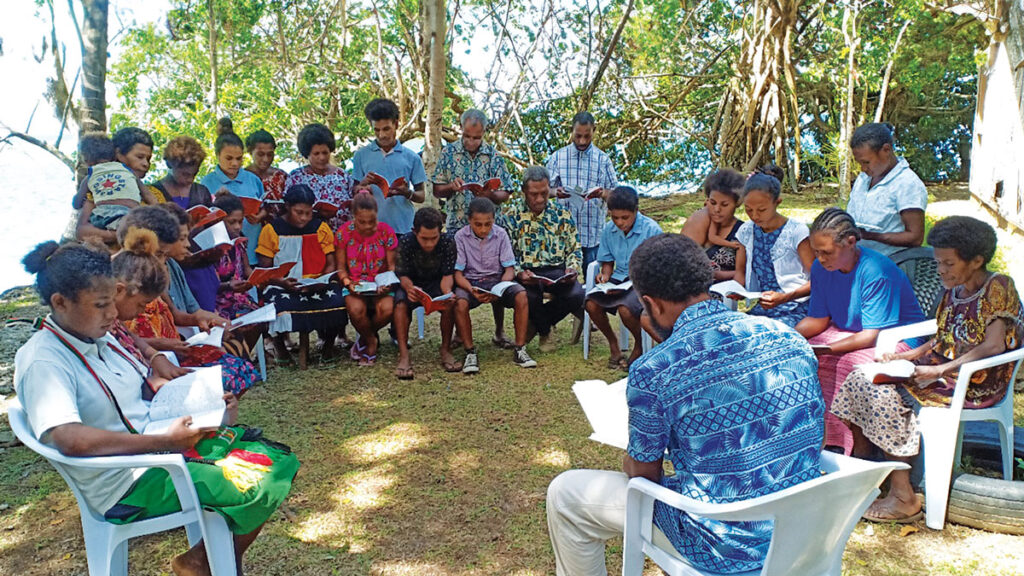I love water. I cannot say this emphatically enough. I just love water! I have always loved it in all its forms. Water is my element. Until the age of 22, I lived in Warsaw, the capital of Poland.
Warsaw is landlocked, located in the centre of Poland. So, my favourite summer holidays were always on the shores of the Baltic Sea, some 600km north of Warsaw. The Seventh-day Adventist Church in Poland owns a campground that is situated within walking distance of the Baltic Sea. Lucky for me, my dad was the Polish Union youth director, which meant that he was often in charge of the annual youth camps held at that campground. So, from the youngest age—regardless of the age group of young people attending—I was allowed to go.
Getting to the Baltic Sea was a ritual in itself. We would jump on an overcrowded train and travel north all night. Sometimes, because of crowding, we would stand in the carriage corridor. After arriving, we would walk several kilometres to the campground and then spend glorious summer days on the beach, frolicking in the sea.
During summer days in Warsaw, I would spend endless hours in the public pool. Later on, I became a lifeguard and worked several hours a week at the pool, which meant I could swim for free. Sadly, during long Polish winters, my love affair with water was reduced to hours in the bathtub.
As a young adult, I immigrated to Australia with the purpose of studying theology at Avondale College. Australia was far more attractive to me than Newbold College, UK, for one reason: I’d heard that while Australia consisted mostly of deserts, the majority of its population lived within an hour’s drive of the ocean. So, I arrived in 1986 and immediately fell in love with Australia’s magnificent beaches. During summer days, if I was not packing Weet-Bix at the Sanitarium factory, I spent my time swimming in the ocean, often for many hours a day. To this day I love the ocean, although I also maintain a healthy respect for it.
Later, when I studied at Andrews University, I discovered that there was more to water than I’d originally thought. Everyone knows that water is the most abundant molecule on Earth. It is also the strangest. This omnipresent, seemingly boring substance is puzzling to scientists, because it defies the rules of physics and chemistry. For example: water is the only substance on Earth that exists naturally in three different states: solid, liquid and gas.

One of the strangest characteristics of water shows up every time you drop an ice cube into a drink. Think about it for a moment: it is a solid floating in its own liquid. If ice cubes sank instead of floating, we would not consider it an anomaly; we would just stir our drinks to keep the upper part cool. However, without this property of water, there would be no drinks to stir and no-one to do so, because there would be no life on Earth, because if water froze from the bottom up, it would kill the ecosystems living in lakes and oceans.
The most important characteristic of water is its necessity to the survival of all living organisms: 71 per cent of the earth’s surface is covered with water, 70 per cent of an adult’s body is made up of water and 85 per cent of the adult brain is water. No water = no life. Water was specifically engineered by God to sustain life.
Thus, it is not surprising that water is found everywhere in Scripture, from beginning to end. In Genesis 1:2 we are told that “the Spirit of God was hovering over the waters” and water is abundant in the Garden of Eden. At the end of this earth’s history, water shows up again. John tells us in Revelation 22:1, “Then the angel showed me the river of the water of life, as clear as crystal, flowing from the throne of God and of the Lamb.” And a little later, in verse 17, we find these words: “Whoever is thirsty, let them come; and whoever wishes, let them take the free gift of the water of life.” Note: the gift is free—hold this thought as we’ll be coming back to it.
Altogether, water is mentioned in Scripture 722 times. That’s a lot.
There is one book in the Bible, the Gospel of John, that totally overflows with water. In this Gospel, water is everywhere, from beginning to end: Jesus is baptised in water; He changes water into wine; He asks the Samaritan woman for water and tells her about the water of life—“If you drink this water,” He says, “you will never thirst again”; He heals beside water; He heals with water—the blind man is told to wash his eyes in water; He walks on water; He moves in a boat on water; He washes His disciples’ feet in water; when the soldiers thrust a spear into Jesus’ side, there is water and blood; and just before His departure, He tells the disciples to throw their nets into the water, and the fish are in the water.
It is in chapter 7, however, that Jesus makes His most significant statements about water. In verses 37,38 He says, “let anyone who is thirsty come to Me and drink” and “whoever believes in me, as Scripture has said, rivers of living water will flow within them”.
Jesus speaks these words at a very important time for the Jewish people—during the feast of tabernacles (Sukkoth). Among other things, this feast was a great celebration of water. The purpose of the feast was thanksgiving and remembrance. The Jewish people were invited to thank God for His protection and care during their journey out of Egypt and for the water He provided. It was thanksgiving for the gift of life.
The last day of the feast could be considered a water libation ceremony. The priests would walk down to the Pool of Siloam with great pomp and ceremony, accompanied by music, dancing and the sound of shofars. The priests would then pour water into golden vessels and, with the same fanfare, return to the temple. The water was then poured into one of two silver bowls. The other held wine (remember the water and blood coming out of Jesus’ side after He died?). At the end of the ceremony, the water and wine were poured out onto the ground as a sign of gratitude to God, for His protection and for the gift of water. It was during this time of celebration and thanksgiving that Jesus chose to say these words: “let anyone who is thirsty come to Me and drink.”
His listeners were invited to turn their attention away from Sukkoth and toward the Giver of the free gift of the water of life. We know, of course, that throughout Scripture, water is a symbol of the Holy Spirit. Jesus says this Himself in John 7:39: “By [water] he meant the Spirit, whom those who believed in him were later to receive; up to that time the Spirit had not been given, since Jesus had not yet been glorified.”
The Gospel of John has deep textual roots in the book of Ezekiel. If you read both books carefully, you will be left with no doubt that John must have been a careful student of Ezekiel. There are just so many parallels. One example will suffice here. In John 3:5, Jesus states: “No-one can enter the kingdom of God unless he is born of water and the Spirit.” This passage is a double reference to the Holy Spirit and a clear echo of the magnificent promise found in Ezekiel 36:25-27: “I will sprinkle clean water on you, and you will be clean; I will cleanse you from all your impurities . . . I will give you a new heart and put a new spirit in you; I will remove from you your heart of stone and give you a heart of flesh. And I will put my Spirit in you and move you to follow my decrees and be careful to keep my laws.”
I want you to just pause and think about these words for a moment. Who is doing all the work here? I will sprinkle water on you (John 3:5); I will cleanse you from all your impurities; I will give you a new heart and put a new spirit in you; I will remove from you your heart of stone and give you a heart of flesh; I will put my Spirit in you and move you to follow my decrees and be careful to keep my laws.
Like the Pharisees, and like Nicodemus, I grew up in a somewhat obedience-oriented environment. The most common message I heard at church was that, if I wanted to gain God’s favour, I needed to be obedient. I needed to be baptised. I needed to keep the Commandments. I needed to be good.
This is not what the Bible teaches. What we find in Scripture—both the Old and New Testaments—is that the work of transformation is all God’s work. He is the Author and Finisher of our salvation (Hebrews 12:2). He is the great I AM of the book of Ezekiel and the Gospel of John, who works for us and in us. The same God who opened the rock and let the water flow wants us to receive the free gift of the water of life. Today! All you and I need to do is allow Him.
So, I have some questions for you: Have you been sprinkled with God’s water today? Have you been cleansed by Him from all your impurities? Are you open to the voice of the Holy Spirit today? When you open your heart to Jesus, He makes a promise to you that no matter where you’ve been, no matter what you’ve done, no matter the errors you’ve made, no matter the pain or guilt you carry, He will do all that He promised through the prophet Ezekiel.
In conclusion, I leave you with a two-fold challenge:
First, drink lots of water. Not soft drinks, tea or coffee—they don’t count. Just plain water (herbal tea is also fine). It will be good for you. Your productivity will increase, your thoughts will be clearer, you’ll accomplish more and have greater strength to resist temptation. Water is God’s gift to you. Drink it to your health.
And second, thank Jesus for the gift of the living, transforming water of the Holy Spirit every time you sip water. As you drink, stop to imagine that you’re being filled with the Holy Spirit. May this act of drinking and visualising symbolise your openness to allowing the Holy Spirit to touch every part of your daily life; every activity and interaction; every task; every phone call, email and social media post. As a Church, we’ve been called to fulfil an important task: to proclaim the nearness of God’s kingdom. This cannot be accomplished without water—both physical and spiritual. So drink up and fulfil the mission of God.
Darius Jankiewicz is field/ministerial secretary for the South Pacific Division.






